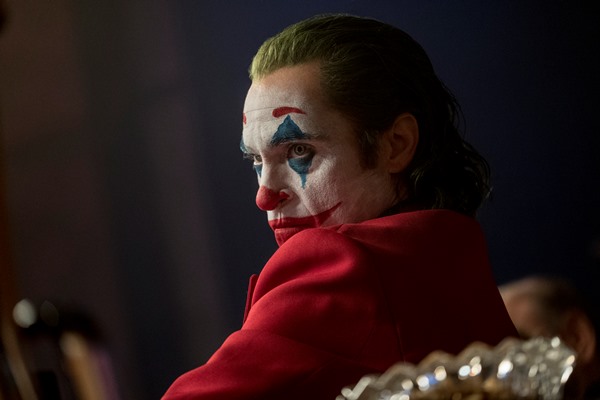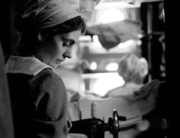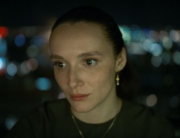If there ever was a debate about acknowledging or accepting comic book-inspired films, Joker has given us the answer we never knew we needed. Although it mainly draws inspiration from Taxi Driver (1976), The King of Comedy (1982), Network (1976), and even The Shining (1980), one can’t help but be impressed with what Joaquin Phoenix and co-writer/director Todd Phillips have concocted in this character study. The worldwide obsession with superheroes has reached its zenith, and we’ve now entered a new dimension where modern pop culture marries art house as a new serious norm.
Set in a 1981 Gotham (a stand-in for gritty New York City), Joker is an unconventional origin story of the iconic Batman villain that plays with the franchise’s time and space. Joaquin Phoenix is Arthur Fleck, a lonely, sweet, and mentally ill man who desires more than anything to become a stand-up comedian and entertain others. He lives with his beloved and homebound mother, Penny (Frances Conroy), and idolizes Murray Franklin (Robert De Niro, in one of the many nods to King of Comedy), a popular late-night talk show host who acts as a fictional version of Johnny Carson. Arthur is also in love with Sophie Dumond (Zazie Beetz as this movie’s answer to King’s actress Diahnne Abbott), a single mother and neighbor.
In the outside world though, Fleck faces constant misfortune and misery. He has a hard time keeping jobs as a clown-for-hire and gets beaten up by bullies during one of his gigs. Somehow a video of his failed comedic set reaches the hands of Franklin, who airs it on his show to mock Fleck. A product of a crime-ridden environment, Fleck feels like a failure rejected by society, and after discovering a long kept family secret, he slowly descends into Taxi Driver vigilante mode, evolving into the tragic psychopathic personality we know today, thanks to Heath Ledger’s interpretation of the role in The Dark Knight (2008).
By delving deep into a completely original portrayal that is unlike the other incarnations of the character, Phoenix manages to give the world the Joker in all his delussional glory. There’s even a neurological disorder that Fleck suffers from, where he laughs uncontrollably at inopportune times, producing laughter that none of the past performers have been able to pull off as naturally. Also, the desire to be accepted by the public is played excellently by Phoenix and is a welcomed new factor to Batman mythology.
Naysayers of the movie are completely missing the point: this isn’t meant to be a faithful account of the comic-book version but more of an homage to the Joker’s gory poetry and traits, weaved in with an assorted bag of episodes from the classic DC Comics adventures. It’s an auteur’s love letter to the Batman universe.
Starsky and Hutch (2004), also directed by Phillips (of “The Hangover” movies), placed the filmmaker in a different category. He understands his source materials’ aesthetics and the zeitgeist on a deeper level than a lot of directors working today. He loves pop culture, and it shows in small winks, like in Joker’s final showdown that evokes a comic-book rendition of a variety show appearance and even refers to a specific incident in Phoenix’s personal life.
De Niro clearly hands the King of Comedy crown to Phoenix in this movie, and the cinematography of an urban city in decay, accompanied with handheld close-ups of Fleck in all his emotional stages, paints the Joker as the most human of all of the other film versions. True, one can argue that this achievement will shock and make viewers identify and empathize with Fleck’s deeds, seeing as many will relate to the desire to get even.
Joker is a revelation and culmination of Phillips’s efforts. He took the origin concept seriously and gives us his own vision through the inspiration of famous movies to place a trademarked character in an alternate universe.







Leave A Comment